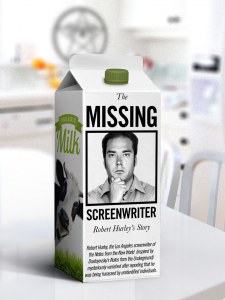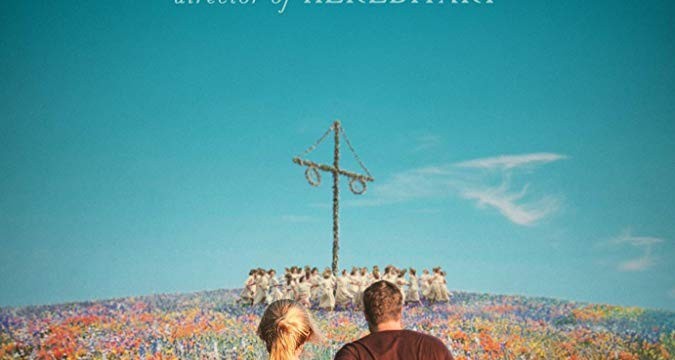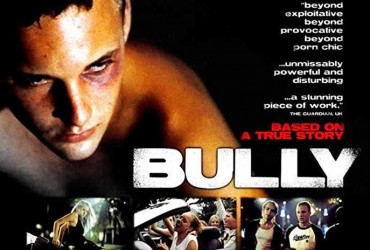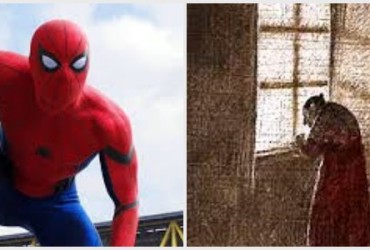How the Scary Experience Does Not Make Up a Scary Story
Here’s a fun fact of my fictional preference: I am not a huge fan of scary stories. Sure, I’ll read up on ghosts, the paranormal, or discover the horrendous curse of the century but I won’t become the #1 fan of these tales. After watching a horror flick or reading a scary novel, I feel like I’m always left with the story trying to convince me “The haunting is real” and “Beware of what’s out there” (cue the “Oooo’s” and wavy fingers).

MIDSOMMAR (THE FLOWER POWER OF DANI)
I recently saw Midsommar and as interesting as a horror flick it was, I could not help but see that director/ writer Ari Aster’s recent work was the complete 180 to one of Russia’s darkest novelist whom I’m constantly analyzing. So much so that I realize, Dostoyevsky does not tell scary stories. The suffering and tormented souls affected by social and political issues? Yes. But is he trying to give us nightmares? No.
Midsommar follows the journey of Dani who, on a rocky relationship, goes to an isolated Swedish village with her boyfriend and his friends to “experience” a religious group’s brightly lit summer festival. To put it simply, it’s the scary adventure of an emotionally and psychologically scarred woman who finds herself participating in the rituals of a suspiciously jubilant cult- complete with hallucinations, jump scares, guts, and death. Oh, and her boyfriend sucks.

THE DARKNESS OF DOSTOYEVSKY
Whenever someone takes a glance at the cover of a Dostoyevsky novel, it’s understandable that they might mistake him as the author of the horror genre. Rightly so, his themes deal with human suffering, social violence, and philosophical darkness. The man himself grew up around his parents’ sick patients, imprisoned in his youth, struggled with gambling addiction, and lost his wife to tuberculosis. He was always working and writing in fear of losing a grasp at happiness, health, and social well-being. Throughout his life, Dostoevsky has witnessed physical and moral suffering from all walks of life which sharpened his perception about the woes of others.
Open any of Dostoyevsky’s novels and you will find factors that could be put in a scary movie such as Raskolnikov hacking two old ladies (Crime and Punishment), Prince Myshkin always looking over his shoulder/ being followed by a murder (The Idiot), Rogozhin slashing away with a knife (The Idiot), demonic forces taking over a town (Demons), and more. In our film inspired by Notes from the Underground, Notes from the New World shows Steven’s pending death with the Russian Mafia. Dostoyevsky’s ability to see and analyze what causes our anguish, fears, and response to social injustice are essential factors for a horror story. In summary, Dostoyevsky’s experiences of tragedy have the power to affect one’s psyche but do not mean for us to live in fear.
As mentioned, Dostoyevsky does NOT write horror.

A QUICK BREAKDOWN ON HORROR/ SCARY STORIES
When we read a scary story, we share a perspective from the character who is in fear and we feel extreme tension rooted in the emotion of the victim. It’s what that makes us hold our breath when the attacker or enemy, a relentless unstoppable force, comes near. It’s a scary moment that emphasizes that no one and nothing will be there to save us or the victim. Thus, horror is the dark threat from the human soul, surrounding environment, or personal experience/ event that the characters and the audience are left to feel haunted by.
Taking Midsommar for example, Ari Aster inspiration from a bad breakup is expressed in Dani’s rocky relationship which leads to a brutal end. Aster warns viewers through Dani’s journey that the relentless force of a human spirit, as broken as it may seem, should not be underestimated. In times of grief, Dani’s desperation to move on led to sacrifice: she will do anything to forget the sorrows of the past. Without spoiling the film, I will say that Dani deals with both scary and non-scary forces beyond her control throughout the entire film. When she finally gets the power to control something, she makes a great sacrifice that leads to an unsettling rebirth that will haunt the village for generations and your plans to join a Swedish cult.

SUFFERING 180
While Midsommar lends a bleak look at disturbing practices within a social setting, it shares the same irony Dostoyevsky has in his bleak look of people dealing with the suffering human condition. But there’s a difference in the way we deal with the scary aspect of social norms. In both stories, we’re shown the scary side to unstable relationships and the forces of social practice/ rituals. Dani’s experience leaves us afraid but again, these are just social norms she happened to experience.
The brutality of social norms is something Dostoyevsky has always showcased throughout his novels and that we suffer through it. His novels are less gore-y than many horror films out there but they nevertheless prove our suffering. Suffering and fear don’t just exist in scary stories- it’s a human condition we are already accepting and dealing with constantly. It’s not about living in fear of an evil uncontrollable force; rather it’s about our ability to overcome it as part of our lives.
While Dani’s suffering turns into a horrific Swedish cult trip, suffering for us is real and normal. According to Dostoyevsky, suffering will always be a normal part of the human condition and therefore, not horrifying. It’s why when I finish reading a Dostoyevsky novel, I’m not scared to live.
***
Want to know about VM Productions‘ Dostoyevsky-Los Angeles Project and about the films we make? Want to participate in our projects? Sign up to get tickets to the premiere of our movie (currently in post production), Dostoyevsky Reimagined-BTS and
grab our FREE e-books !
 |
 |
 Follow us through our social media on
Follow us through our social media on
Twitter, Facebook, Pinterest, Tumblr, Instagram, Goodreads.







Leave a Reply